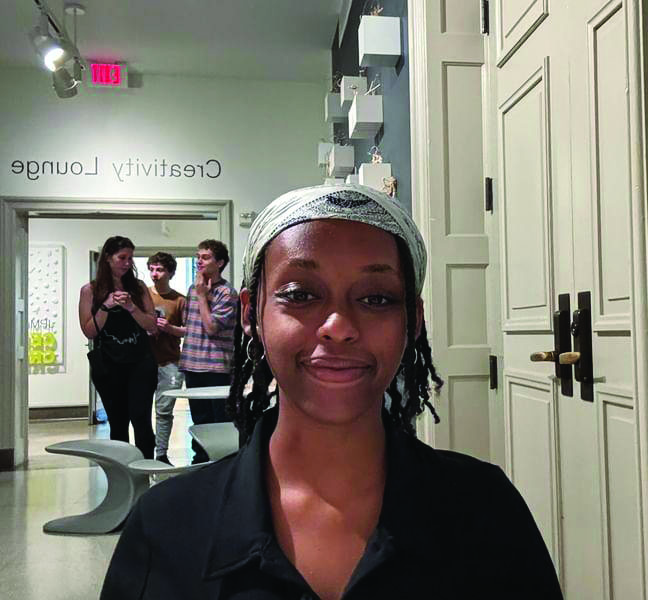Dibora Tilahun, Special to The Denisonian–
On the eve of Sept. 30, a Friday like any other, the winners of the Freshman Senate race were announced.
It was a race in which freshmen who had arrived on campus just three weeks earlier competed to represent students to whom they were strangers. As Crawford got up to its usual Friday night shenanigans and news of the winners spread, my first question was: What would possess anyone to join student government in the beginning of one of the most anxiety-inducing periods of their life when they barely knew anything of the student body they were asking to lead? In search of an answer to my question I interviewed three of the elected six senate members.
This was the result of those interviews:
Naomi Bernstein, now a senator, had many things to say about her campaign. She had wanted to run for senate to be a voice for students of all backgrounds. She mainly pushed for initiatives that would affect the general student population during her campaign. Things like the promotion of wellness during the school year, providing ingredients to cook food that reminded you of home, and increasing staff in the mail room. But she wanted all students to know beyond just her goals, “They can always approach me, I’m always available to talk to.”
Chester Nguyen, another freshman senator, said that he tried to connect to everyone in his campaign. His initiatives differed greatly from Naomi’s. He stated that his main concerns were residential life and sustainability. He wanted to focus on issues that would better the lives of students in the long term, not just solutions to current problems. When asked about his thoughts on the main concerns of freshmen in his year, he replied, “I can’t generalize what they want, but I aim to always be approachable.”
The last of our interviewees, Abigiya Mekonen had other thoughts to bring to the table. Her campaign, she says, was mainly targeted towards international students. Focusing on initiatives such as acclimating students to a new country, establishing drivers license workshops and making sure international students’ concerns were being addressed. Although Denison has many programs to support international students she wanted to make sure they were still represented in committees such as these. When asked if she had anything else she wanted to say she replied that she wanted it to be known she was always open “to listen to anyone.”
At the end of these interviews I was marveled at these students’ dedication to better the experience of others in their year. Their responses were tailored to the things they had observed since coming to Denison and therefore were very different. Still, I was aware of the similar thread in all of their answers. While they might have brought varying, and equally valuable, perspectives to the table, they all wanted it to be known that they were someone you could talk to. We all come from different backgrounds and the start of university means different things to all of us. While the nuances of our experience are undeniable, it is nice to know that when we need someone to talk to there is always someone willing to listen, because they need someone too. To know that, if nothing else, the want to share ourselves with each other in trying times is universal.

